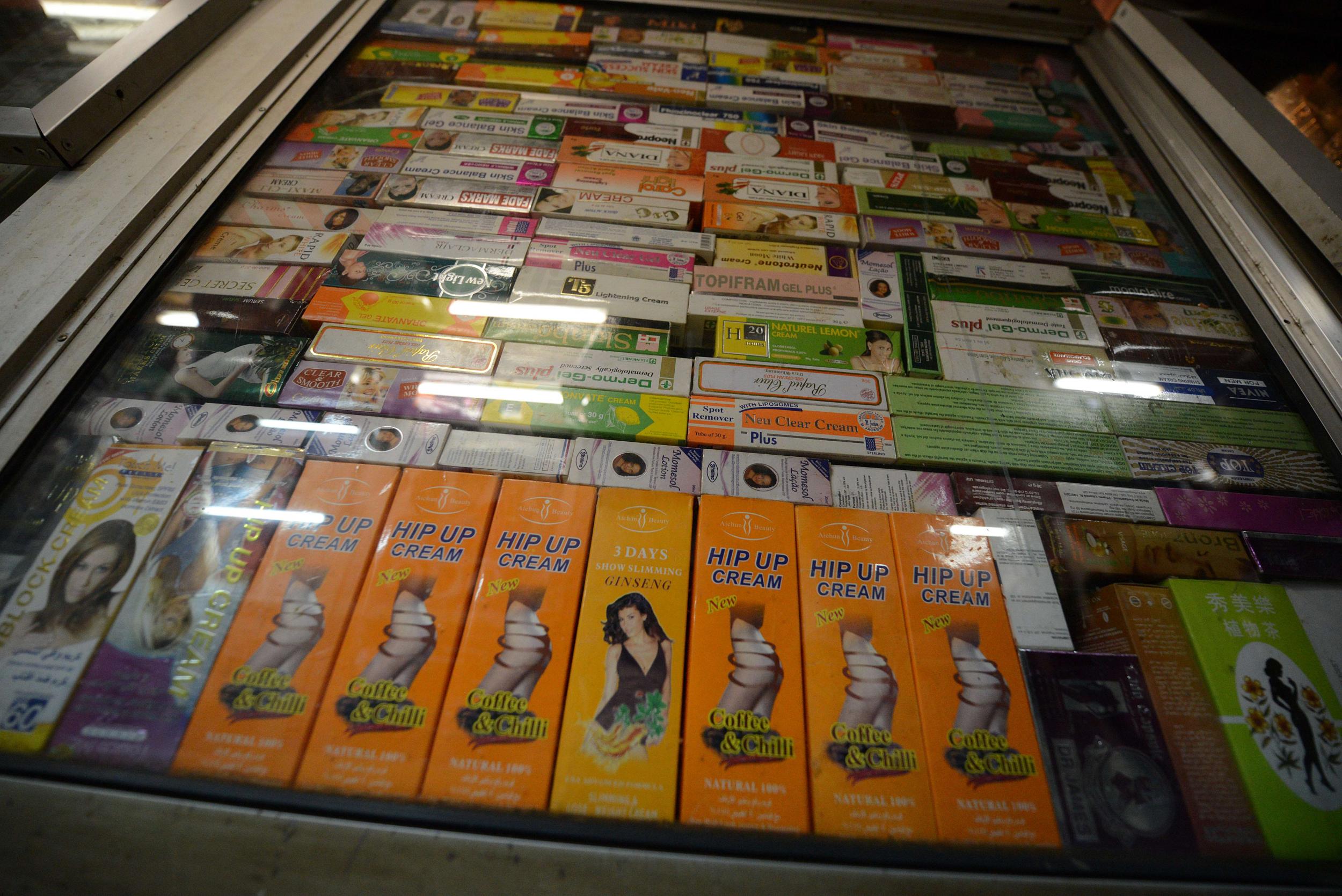Cosmetics marketed to women of colour contain higher levels of toxins, experts warn
Mercury, hormone-disrupting chemicals and steroids are just some of the potentially harmful substances in beauty and personal care products

Your support helps us to tell the story
From reproductive rights to climate change to Big Tech, The Independent is on the ground when the story is developing. Whether it's investigating the financials of Elon Musk's pro-Trump PAC or producing our latest documentary, 'The A Word', which shines a light on the American women fighting for reproductive rights, we know how important it is to parse out the facts from the messaging.
At such a critical moment in US history, we need reporters on the ground. Your donation allows us to keep sending journalists to speak to both sides of the story.
The Independent is trusted by Americans across the entire political spectrum. And unlike many other quality news outlets, we choose not to lock Americans out of our reporting and analysis with paywalls. We believe quality journalism should be available to everyone, paid for by those who can afford it.
Your support makes all the difference.Cosmetics marketed at women of colour contain higher levels of toxins such as mercury, steroids and hormone-disrupting chemicals that are associated with a range of health problems including cancer, experts have warned.
Experts from George Washington University and Occidental College in the US warned that even small amounts of such toxins could also trigger “adverse health consequences” that affect fertility and the development of unborn children’s brains.
In tests, greater amounts of “beauty-product related environmental chemicals” – from skin-lightening creams and other products designed to enable women to confirm to “European beauty norms” – had been found in the bodies of women of colour compared to white women, they added.
Some skin-lighteners contain hidden ingredients such as mercury and steroids; hair relaxers and straighteners can be laced with the hormone estrogen, which can trigger premature reproductive development in young girls and tumours in the uterus.
A chemical used in vaginal douching and other beauty products, called DEP, may also cause birth defects in babies and has been linked to health problems in women.
In a comment article in the American Journal of Obstetrics and Gynecology, Dr Ami Zota and Dr Bhavna Shamasunder wrote: “Racial discrimination based on European beauty norms can lead to internalized racism, body shame, and skin tone dissatisfaction, factors that can influence product use to achieve straighter hair or lighter skin.
“Thus, beauty product use may be one way that structural discrimination becomes biologically embedded.
“Women in Africa, India, the Middle East, Southeast Asia, and the Americas regularly use skin-lightening cosmetics.
“Skin-lightening creams can contain hydroquinone, topical corticosteroids, or inorganic mercury. Multiple cases of mercury poisoning, characterized by damage to the kidneys and the central nervous system, have been reported following use of skin-lightening products.”
They said the US limited the amount of mercury in skin products, but unlicensed cosmetics were still available.
The academics warned that doctors working in obstetrics and gynaecology “should be aware of the potentially toxic effects of commonly used beauty products, recognize disparities across these demographics, and be prepared to counsel patients who have questions about these and other environmental exposures”.
Speaking to The Independent, Dr Zota said cosmetics had been known to contain harmful substances for decades.
But she said: “I’m increasingly reminded than the general, everyday consumer, as well as even people with specialist knowledge like clinicians, are still not widely aware that cosmetics … have the potential to contain chemicals that can harm reproduction and development [of foetuses].
“Things like heavy metals being used in certain cosmetics is something that’s been happening for decades.”
She said the issue was a global problem but added that regulations in the European Union were generally tighter than in the US.
While the US does have some controls, Dr Zota said there was “very little enforcement of these types of laws”.
One major problem, she said, was that cosmetics companies do not always reveal the full ingredients of products.
Dr Zota said she personally did use cosmetics but added: “I do try to buy products that are free of the known bad actors.
“Where possible … I buy fragrance-free products because fragrance is often not supplying an essential function and is purely cosmetic and we know that fragrance often contains a whole host of chemicals, not just one chemical.
“Because of trade secret laws, companies are not required to disclose the individual components of their fragrance.”
The following groups attempt to provide lists of cosmetics without harmful ingredients: the Campaign for Safe Cosmetics, the Skin Deep Database by the Environmental Working Group, and the Silent Spring Institute, which has a mobile phone app called Detox Me.
Join our commenting forum
Join thought-provoking conversations, follow other Independent readers and see their replies
Comments